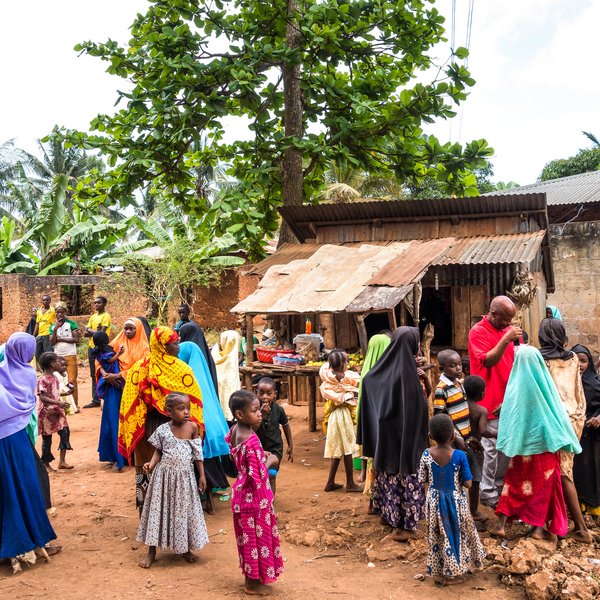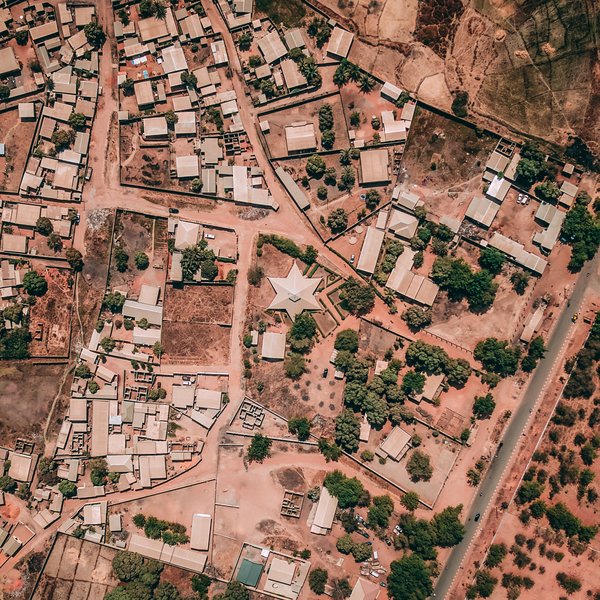Welcome to the Prindex FAQ section. Here, we’ve compiled answers to common questions about our work, mission, and the global effort to measure and understand perceptions of property rights. Whether you’re a researcher, policymaker, or simply curious about property rights issues around the world, this section is designed to provide clarity on how Prindex gathers and analyses data, how our insights can be used, and the ways in which secure property rights contribute to sustainable development. If you have any further questions, feel free to explore our resources or reach out directly
The Prindex global dataset looks at perceived tenure security in countries around the world. Perceived tenure security is a measure of how an individual feels about the security of their land or housing rights. Prindex data is fully comparable between countries and can be analysed at the global, regional or national level.
The data can be further disaggregated using demographic information (age, gender, income, employment, educational level and marital status); tenure type (owner, renter or family-owned property); documentation (whether or not someone holds legal documents that prove their rights); property characteristics (number of occupants, main or second property, land attached); and location (urban or rural).
We also gather data on the reasons people give for feeling insecure and the impact of family changes, such as the death of a spouse.
The 2020 and 2024 global datasets reveal that worldwide over one billion people feel insecure in their land and housing rights. For more information, see our latest Comparative Report 2024.
Our global dataset is based on a nationally representative sample of adults aged 18+ in each of the countries surveyed. This is different to most land rights studies, which often only interview the typically male head of household. By randomly selecting adults we are able to gather the views of often excluded groups, such as women and younger people. Our approach also lets us assess people living informally with friends and family.
Perceptions are a good proxy for how people assess risk and a strong indicator of how they will behave in the future. When people feel secure about their land and housing rights, it gives them the confidence to invest in their homes, communities, small businesses and farms. Improving perceived tenure security can therefore directly benefit the wider community and economy.
Perceptions may even reflect people’s reality more than their legal status – cultural practices/social norms, awareness of rights, corruption and enforcement by authorities can make people more or less secure regardless of the law. Perceptions also offer a way to compare the land and housing rights of people in living under very different legal systems and tenure arrangements around the world.
Our surveys always include one central question:
“In the next five years, how likely or unlikely is it that you could lose the right to use this property, or part of this property, against your will?”
Respondents answer this question about their home, land and other properties using a four-point scale. They can answer 'very likely' or 'somewhat likely' (classed as insecure) or 'very unlikely' or 'somewhat unlikely' (classed as secure). They can also say they don’t know or refuse to answer.
Yes, anyone can download and use our data for non-commercial purposes. If you want to use the data for any other reason, get in touch. For more information see our terms and conditions.
Prindex Global is an initiative of the Global Land Alliance supported by funds from the European Commission granted to the International Fund for Agricultural Development (IFAD) and managed by the International Land Coalition as part of the Global Data Partnership.
In 2023, four land-sector organisations came together, with support from the European Commission, to form the European Commission Land Data Partnership. This partnership, which includes the International Land Coalition (coordinating the partnership), the Land Portal Foundation, the Land Matrix Initiative, and Prindex, aims to strengthen the central role of data in securing equitable land rights for sustainable development, poverty eradication, peace and the protection of human rights.
Our approach is aligned to global frameworks like the Sustainable Development Goals (SDGs), the Voluntary Guidelines for Tenure (VGGT) and the Global Land Indicators Initiative (GLII) and can be used by regional bodies, governments and national statistic offices for monitoring and reporting.
Our data also works to highlight problem areas and can be used by lawmakers to design policies that work for their citizens.
Academics, researchers and other data initiatives can access Prindex data to analyse the links between tenure security and other areas of development. Activists and civil society organisations are free to use our data to raise awareness, campaign for change and hold governments to account.
Businesses can apply to use our data, so long as it’s for social good (please contact us and check with us first).
We use a clustered random sampling approach based on the latest available census data. As we use multistage sampling, we do not necessarily conduct surveys in all areas of a country. The results remain nationally representative because the whole population has an equal chance of being selected.
Some small groups in a population are sometimes excluded where it is too difficult or unsafe to survey them. This can introduce bias and is kept to an absolute minimum. For further details on sample exclusions and margins of error, see our codebook and the Gallup World Poll survey documentation.
We conduct telephone interviews where more than 80% of the population have access to a phone. In other areas (some low-income countries and rural areas), we conduct face-to-face interviews. Visit our methodology page to download all our questionnaires, a list of official tenure documents for each country, and sampling strategy.
Prindex data were collected in two rounds: 2020 (with data collection in 2018, 2019 and early 2020 in 140 countries) referred to as round one, and 2024 (collected in 2023 and 2024 in 108 countries) – round two. A nationally representative and comparable assessment of individual perceptions of tenure insecurity is the heart of the Prindex approach. It enables women, youth and people who do not own property to be part of the land rights conversation, not just the heads of households or those who hold official titles.



